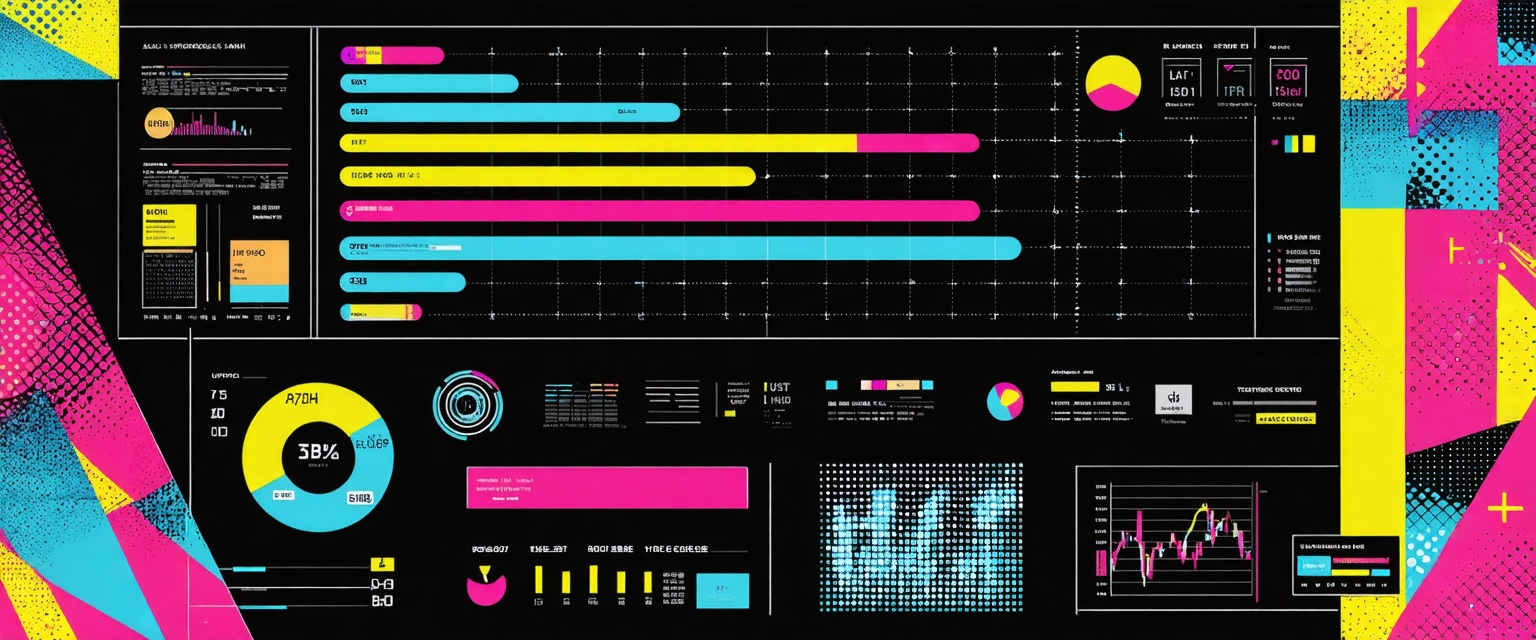Discover how AI agents streamline multi-phase proposal creation for business development directors, enhancing efficiency and win rates.
Business development directors waste hours tracking down past proposals, comparing vendor qualifications, and reformatting documents across multiple phases. These manual tasks create delays that put revenue at risk and reduce time for strategic initiatives.
Thanks to advancements in agentic AI, it's now possible to automate multi-phase proposal creation from start to finish. Datagrid’s data connectors unify scattered content in real time, giving AI agents the full context they need.
This article explores how AI agents automate proposal creation for business development directors.
Understanding Multi-Phase Proposal Creation
Multi-phase proposal creation is a structured process that business development directors use to craft compelling, customized proposals for client opportunities. This approach typically involves several distinct stages, each with its own objectives and challenges.
The initial phase focuses on analyzing tender or RFP documentation, extracting key requirements, and defining the proposal strategy. Business development directors must gain a comprehensive understanding of the opportunity, client needs, and competitive landscape.
During the content creation phase, subject matter experts (SMEs) develop tailored content that addresses all requirements and showcases value. Their expertise ensures technical accuracy and relevant detail.
The review and quality control stage involves iterative reviews for grammar, clarity, and formatting, as well as cross-checking compliance with RFP instructions and evaluation criteria. Rigorous reviews help maximize proposal quality and competitiveness.
The final phase typically involves submission and debriefing to analyze results and improve future submissions.
Business development directors juggle multiple pressures throughout this process. They balance speed, accuracy, and customization while coordinating resources across teams and ensuring compliance with various requirements.
Each phase involves distinct tasks, data sources, and collaboration points. Without proper automation and coordination, this complexity leads to delays, errors, and missed opportunities.
How Multi-Phase Proposal Creation Drives Business Development Success
For business development directors, proposal creation isn't just paperwork, it's the cornerstone of win rates and revenue targets. The multi-phase approach helps orchestrate resources, ensure compliance, and maintain brand consistency while meeting tight deadlines.
Strategic Importance of Proposal Quality
High-quality proposals are the tickets to business development success. They communicate your value proposition, capabilities, and solutions to potential clients.
A strong proposal can:
- Stand out from competitors
- Show clients you understand their needs
- Display your expertise and track record
- Map out clear project execution plans
Your win rates directly connect to proposal quality. Thorough understanding of the opportunity, analysis of tender documentation, scope of work, and selection criteria are all essential components.
Turnaround Time: A Critical Factor
In business development, speed gives you an edge. Quick, high-quality proposals help you tackle more opportunities, show clients you're responsive, and get ahead of competitors in competitive bids.
But speed can't sacrifice quality. Finding this balance is the art of successful business development. Automating multi-phase proposal creation with AI agents empowers business development directors to achieve this balance.
Orchestrating Resources Across Teams
Creating winning proposals means coordinating multiple departments. Business development directors must build teams across functions, align everyone with proposal requirements and deadlines, and keep communication flowing throughout the process.
A well-organized approach, supported by AI enablement, delivers a compliant response and avoids missteps.
Ensuring Compliance and Brand Consistency
In many industries, proposal compliance determines your success. Business development directors need to address every RFP requirement, meet industry regulations and standards, and keep branding and messaging consistent across proposals.
This consistency boosts your win chances and reinforces your professional reputation. Utilizing content repurposing with AI can help maintain brand consistency across proposals and other marketing materials.
The Competitive Advantage of Streamlined Processes
Companies with faster, better proposal workflows win more often. By improving processes and using technology, business development directors can submit more proposals, improve quality and consistency, and free up strategic thinking time.
Proposals that undergo rigorous review, editing, and refinements in an iterative process stand a better chance of success in competitive environments.
Mastering multi-phase proposal creation drives higher win rates and increased revenue. Success comes from balancing speed, quality, and strategy throughout every proposal stage.
Time Traps to Avoid When Managing Multi-Phase Proposals
Even experienced proposal teams fall into productivity-killing patterns that drain resources. Recognizing these common pitfalls is step one in building a smoother proposal workflow.
Manual Work and Missing Content
Copying data between systems wastes hours and creates errors. Proposal teams often lose valuable time hunting down compliance statements because no one remembers where they were saved. This content hunting kills productivity.
Teams often recreate standard sections for each proposal despite having written similar content dozens of times before. Content scattered across multiple places without good search tools forces staff to recreate rather than reuse.
Regularly automating database cleanup can help maintain data accuracy and accessibility, reducing time wasted searching for content.
Version Mix-ups and Formatting Trouble
When multiple people edit offline or use outdated files, confusion multiplies. Teams waste hours fixing conflicting changes or accidentally overwriting important edits. Sometimes outdated information reaches clients, damaging trust.
Formatting problems typically appear right before deadlines. Teams rush to match client layout requirements, fix inconsistent styles, or solve document corruption issues. These last-minute formatting sprints create unnecessary stress and mistakes.
Approval Bottlenecks and Burnout
Slow approvals from legal, finance, or executives can halt progress completely. Proposals often sit for days waiting for technical review, then teams are expected to submit within hours of getting feedback.
These delays affect more than one proposal, they crush morale, exhaust teams, and limit new opportunities. The constant pressure to make up for process problems leads to burnout and staff turnover.
What's needed is a streamlined, scalable approach to eliminate these recurring traps. AI agents automating multi-phase proposal creation help business development directors fix these common problems, creating a more sustainable and effective proposal process.
How AI Agents Automate Multi-Phase Proposal Creation
AI agents are transforming proposal creation by streamlining workflows, improving content quality, and optimizing team collaboration. By automating proposal creation, these intelligent systems revolutionize each stage:
Automated Meeting Transcription and Requirements Extraction
AI agents transcribe proposal meetings and automatically extract key requirements from conversations. They identify action items and critical data points, freeing teams from manual note review.
An AI meeting assistant captures and highlights relevant information, providing structured summaries for proposal teams. This catches vital requirements and speeds up preparation.
By integrating communication tools like Zoom and CRM systems like HubSpot, you can streamline the meeting process. For instance, you can integrate HubSpot with Zoom to automatically capture meeting data into your CRM.
Centralized Content Assembly and Template Generation
AI pulls content from centralized databases like past proposals, knowledge repositories, or CRM systems. It assembles these pieces into cohesive proposal drafts, ensuring consistency across submissions.
AI-driven templates generate documents that follow formatting guidelines while inserting relevant data automatically. This slashes content creation time and aligns better with client needs. Moreover, AI can automate analytics reporting, providing insights to further improve content quality and effectiveness.
Workflow Automation for Approvals and Real-Time Triggers
AI agents automate approval workflows with automatic reminders, document revision tracking, and deadline management. These systems trigger real-time AI notifications and updates, helping teams stay on top of approval stages without manual follow-ups.
When integrated with CRM systems, AI tracks approval status in real-time, preventing bottlenecks from delaying proposals.
Improved Data Access with Advanced Connectors
Data connectors streamline access to key information by integrating data from various systems, including CRM, project management tools, and databases. For example, you can integrate Salesforce with PandaDoc, enabling AI to pull the latest data automatically into proposal drafts, ensuring accuracy and eliminating manual data entry.
By implementing AI agents in your proposal process, you can expect:
- Faster turnaround times, with some companies reporting 70-90% quicker proposal cycles
- Improved accuracy and compliance, crucial for regulated industries
- Enhanced customization, leading to higher engagement and conversion rates
- Reduced operational costs from lower administrative burden
With AI handling the first draft, teams can focus on personalizing and perfecting proposals, rather than reinventing the wheel every time.
Datagrid for Construction Proposal and Vendor Management
Construction professionals face unique challenges managing complex proposal documents, vendor qualifications, and extensive bid materials across projects. AI agents in construction offer specialized solutions to streamline these processes for business development directors:
RFP Response Acceleration
By automating proposal processing, AI agents process thousands of RFP documents simultaneously, extracting critical requirements, compliance needs, and submission deadlines. This automation ensures complete submissions and reduces oversight risk, improving proposal quality.
Vendor Qualification Automation
AI analyzes vendor documentation, safety records, insurance certificates, and performance history to generate comprehensive qualification reports. This helps construction firms make informed decisions about vendor selection and reduce partnership risks.
Bid Comparison Intelligence
Automated systems extract and organize pricing, materials, timelines, and exclusions from multiple bid packages. By creating side-by-side comparisons highlighting key differences, construction teams can select the best subcontractors and suppliers. These AI systems also help automate budgeting by accurately analyzing costs across bids.
Subcontractor Performance Analysis
By processing historical project data, AI evaluates subcontractor reliability, quality, and schedule adherence. This analysis shapes future vendor selection, helping firms build relationships with high-performers and identify improvement areas.
Material Specification Compliance
AI agents analyze product submittals against project specifications to identify compliance gaps, substitution opportunities, and potential installation conflicts before materials arrive onsite. This prevents costly delays and rework.
Contract Term Extraction
Automated platforms identify critical terms, payment schedules, and change order provisions across vendor agreements. This enables effective contract management and risk mitigation, aligning all parties on project expectations.
Document Version Control
Advanced systems track and compare proposal revisions, identifying substantive changes between versions and ensuring your team works with current information. This reduces errors and improves collaboration across project stakeholders.
By implementing AI solutions, your procurement team can focus on strategic vendor relationships while automation handles document-intensive analysis that typically creates bottlenecks and delays. Additionally, you can maximize leads with AI, enhancing your business development efforts.
Simplify Construction Tasks with Datagrid’s Agentic AI
Don't let data complexity slow down your team. Datagrid's AI-powered platform is designed specifically for teams who want to:
- Automate tedious data tasks
- Reduce manual processing time
- Gain actionable insights instantly
- Improve team productivity
See how Datagrid can help you increase process efficiency.
Create a free Datagrid account.













